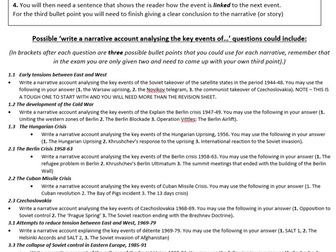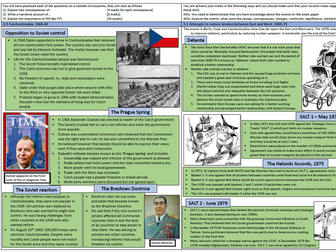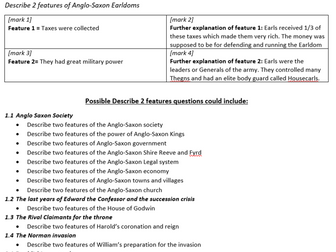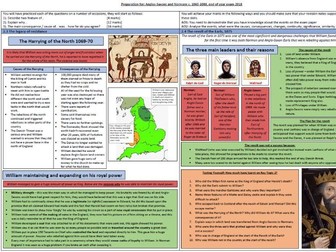
Superpower relations / Cold War: Possible GCSE questions
Three separate sheets that contain brief guidance on how to answer each of the exam questions for the Superpower relations and the Cold War Edexcel GCSE exam. In addition there are possible questions of each type organised by Key Topic. The intention of this resource is to support pupils with their revision. After they have revised a key topic, they can complete an exam question which can then be marked by the class teacher. The resources are in Word format so you may wish to add more questions. They have been kept to one age to support pupils to easily access them and not be over faced.
The question stems are:
1). explain two consequences of…
2). Write a narrative account…
3). Explain the importance of…








